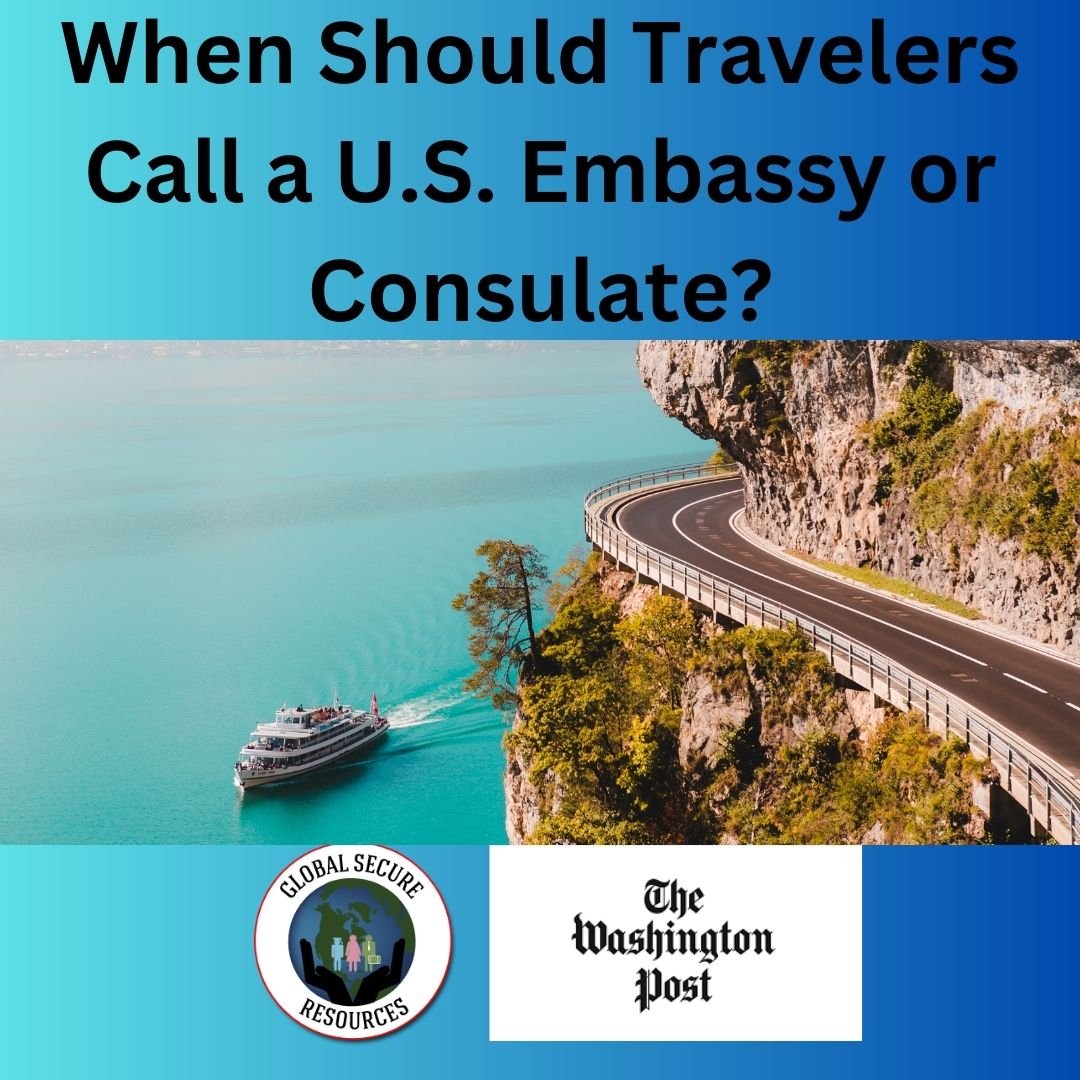Tips For Locating Your Loved One Abroad
Proactive, Prepared, & Protected
Before Traveling, Start with GSR preparation and research. Taking these pre-travel measures can be extremely helpful, especially in the event of a worst-case scenario.
Purchase medical travel insurance, and be sure to upgrade your protection with Medjet for additional protection of hospital-to-hospital coverage. www.medjet.com/globalsecure
Make copies and create an e-file with essential documents.
Register with the US Department of State travel STEP Program https://step.state.gov/step/
Fill out the Privacy Release Form: In emergencies, the Embassy can assist private citizens in locating friends or relatives in the consular district and passing messages if necessary. They are limited somewhat in this function by the Privacy Act, a U.S. law stating that the U.S. Government cannot release information concerning an individual without that individual's consent. Included is the release form that needs to be signed. The traveler may sign this form and leave it with a family member; if needed, they will have the release form ready. https://www.globalsecurestudent.com/privacy-act
Schedule a Personal briefing and review an Individual Threat Assessment Plan (ITAP) or Safe Student Abroad Assessment (SSA). These assessments cover lodging, crime, terrorism, civil disorder, environmental issues, culture shock & reverse culture shock, emergency contacts, and mental health resources. Having a readily accessible list of emergency contacts is crucial. Make sure to create one. It is important to develop a communication plan with your loved ones in the event of an emergency during your travels. Decide on the frequency of check-ins to keep them informed and reassured.
Tips for locating your loved one in a crisis abroad or if they are missing:
It can be challenging to stay in touch with a loved one abroad, especially during a crisis caused by natural or human factors. Power outages or overwhelmed telephone lines can make sending and receiving calls difficult. If you are concerned about the safety or whereabouts of a loved one during a crisis, there are several ways to establish and maintain communication. It's essential to create a communication plan before departure, which includes how frequently the traveler will check in to update their itinerary.
Send them a text message: U.S. cell phones do not always work overseas, especially when phone services are overwhelmed by a high volume of calls during a crisis. Instead, consider sending your loved ones a text message – it is more likely to get through if they are in Wi-Fi range, even without local cell phone service.
Use social media: Check all their social media accounts for recent posts or comments. Some social media like Facebook allow people to “check-in” if they are in or near a crisis location.
Contact your loved one's travel companions and close friends to gather information about their whereabouts. They may be able to provide you with updates or pass along a message to your loved one.
Call the hotel or sponsoring organization: If you know your loved one’s itinerary, contact the current or next hotel on their planned trip and request that they ask your loved one to contact you. Suppose your loved one is overseas for study or work. In that case, their sponsoring organization in the United States or overseas may have information and be able to pass a message asking them to contact you. For privacy reasons, the organization may be unable to provide much information.
Call the tour operators: If your loved one is on a tour, contact the tour operator in the United States. It may not provide details because of privacy concerns but it may pass a message.
Call the local police: If you believe your loved one is in danger, call the police station or emergency services in the country that is local to where your loved one is staying, and find out what they can do to help. Each U.S. embassy and consulate provides local emergency numbers on their websites. Please provide as many details about the person and their itinerary as possible. Find embassy and consulate information here: https://travel.state.gov/content/travel/en/international-travel/International-Travel-Country-Information-Pages.html
Carrie Pasquarello Shares travel tips - The Washington Post https://www.washingtonpost.com/travel/2022/02/16/travelers-united-states-embassy/
Consider contacting international aid organizations: Various global organizations work to find people overseas. Consider contacting one of these organizations, which might have an established network of contacts in the crisis area.
International Commission on Missing Persons
https://oic.icmp.int/index.php?w=intro
INTERPOL Yellow notices are issued to help locate missing persons, often minors, or to help identify persons who are unable to identify themselves.
https://www.interpol.int/en/How-we-work/Notices/Yellow-Notices/View-Yellow-Notices
Contact the Department of State. U.S. Citizens Missing Abroad:
They can be reached by phone at 888-407-4747 if calling from within the U.S. Check travel.state.gov website for additional information – during a large-scale crisis, they may set up a crisis-specific email address which allows them to collect information more quickly when they have a large number of requests for assistance.
In the event of a crisis, the U.S. embassy or consulate in the affected country works to identify and locate U.S. citizens needing assistance with help from local authorities. In addition, check the travel.state.gov page for more information on What the Department of State Can and Can’t Do in a Crisis. Also, stay informed and check for U.S. Embassy country-specific advisory levels, risk indicators, and Security Alerts.
Questions: Please contact Carrie Pasquarello at GSR@globalsecurestudent.com or info@globalsecureresources.com

